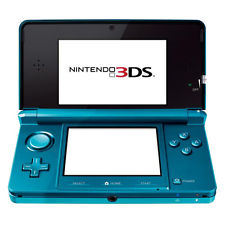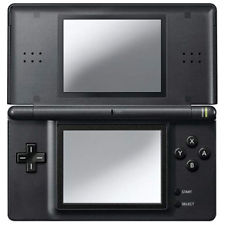|
December 1st, 2012, 01:46 Posted By: wraggster
Nintendo's new console is far from a darling of the press - but few of the arguments made against the Wii U's business case actually hold water
[h=3]Nintendo[/h]nintendo-europe.com
Three times it's happened, and three times the naysayers have been wrong. When the Nintendo DS launched, its dual-screen layout was ludicrous - an experiment too far from a company desperate to be seen as innovative. When the Nintendo Wii launched, its decision to dump the traditional controller and ignore the graphical fidelity power-struggle was equally mad. Most recently, the Nintendo 3DS was a gimmick, a ludicrous anachronism in the age of the smartphone - and hell, they were almost right about that one, until the usually somnolent Nintendo startled us with an eye-watering price cut and an aggressive software launch schedule which sent sales up into the tens of millions.
"We live in a bit of a bubble in the games media; read enough sparkling repartee about the Wii in your comment threads and it's easy to forget the sheer mass of people who bought a Wii"
Since the US launch a few weeks back, and intensifying further around this week's European launch, the Wii U has attracted similar noises - and this time, even those inclined to give Nintendo the benefit of the doubt are uncertain. After all, every great track record ends somewhere, right? Besides, the Wii U does seem a bit peculiar and anachronistic - a console that matches the performance of Sony and Microsoft's six- and seven-year-old models, shipping with a on odd, tethered hybrid of controller and touchscreen tablet... In an era of iPads and Nexus 7s and Kindle Fires, where LCD touch panels sprout from our every pocket and satchel, the Wii U's Fisher-Price take on tech that's already a reality for most of us all just seems rather hopeful and twee, perhaps even a bit desperate.
Besides, wasn't the Wii, in the final analysis, less of a success than it seemed? It sold great guns, sure - even after years of hearing about sales declines and the death knell of the console, it's still way ahead of either PS3 or 360 in installed base terms - but the software attach rate was low and many publishers (including, admittedly, quite a number who shipped nothing but utter crap for the console) have been left feeling burnt. Gamers, too, love to hate the Wii, even after all these years - it's the console that gathers dust, the console that made developers think we all wanted to wave our arms like fools instead of tapping buttons like the modern-day concert pianists we truly are. Yes, Nintendo still made a massive profit, floating briefly to the very top of Japan's stock market, ahead of heavy industry firms that dwarf it in every other respect - but unlike the Wii, Wii U hardware won't be profitable out the gate, Nintendo having learned some tough lessons about pricing from the 3DS' early troubles.
And so on, and so forth. You don't have to look very far across the games media to find analysis of the business and market cases for Wii U; some of it interesting, although sadly, the vast bulk of it written with all the business and market understanding of a socially ill-adjusted 15 year old who still hasn't quite grasped that his worldview is only one worldview among 7 billion, and that people who like other music, movies, games or hobbies are not necessarily the result of some terrible brain-damaging accident or a widespread failure of abortion policy.
We live in a bit of a bubble in the games media; read enough sparkling repartee about the Wii in your comment threads ("ffs more waggle crap, nintendo sux", et cetera, et cetera, ad nauseum) and it's easy to forget the sheer mass of people who bought a Wii and both used and enjoyed it just as much as they expected - a few hours of entertainment here and there, brought out at Christmas or birthdays to keep the family from one another's throats, treated as a light exercise device or a surrogate baby-sitter or a catalyst for drunken dancing.
"Profitability has been a key argument since Satoru Iwata announced that the Wii U wouldn't be profitable on hardware sales at launch"
Which is not to say that the Wii U is a surefire success - far from it. It's simply to say that the challenges which the Wii U faces are not especially new challenges, nor are those most vociferously raising the issue of those challenges necessarily speaking from positions of either neutrality or insight. In the past few weeks we have seen repeated claims that the Wii touchscreen will be too confusing for the players who enjoyed the simplicity of the Wiimote - ignoring the fact that the DS, too, sported two screens, one of them touch enabled, and caused remarkably few brains to explode, not to mention the fact that touchscreen devices have proved insanely successful in markets where traditional interfaces have caused difficulty, such as young children and the elderly.
We've seen arguments that the Wii U will fail because the Wii "burned" consumers, founded entirely, it seems, on the views of core gamer writers and their core gamer friends - an important market, sure, but the Wii's installed base of nearly 100 million units didn't come primarily from that audience (and many of them will get on board, grudgingly or otherwise, for the simple reason that Nintendo's games and those of its preferred development partners are generally excellent).
Profitability has been a key argument since Satoru Iwata announced that the Wii U wouldn't be profitable on hardware sales at launch. Less attention was paid to the mention a while later that while a Wii U console wouldn't be profitable, a Wii U console plus one game would tip into the black - I'm not aware (though I'd welcome a correction from anyone with insight) of a dedicated games console that ever had an attach rate of lower than 1.0, rendering this argument effectively moot. (Margins, though, are worthy of discussion - perhaps some time down the line, when we have solid figures and a little more space for calm debate.)
Of course, there's third party support - but my god, if Nintendo has been around the houses with the "two screens are confusing!" argument, it's practically had the world tour of the third-party support debate. Every console Nintendo has ever made has been dominated by sales of Nintendo's own software and that of a close cadre of development and publishing partners - Ubisoft are probably the best example this generation, but Capcom and Squaresoft, to name but two, have both occupied similar "friend of Nintendo" positions over the years. Everyone else has a tough time, so every generation, lip service is paid to making things better for third parties - and every generation, Nintendo consoles are sold for the implicit, if not express, purpose of simply playing games made by Nintendo & Pals.
I don't know how the Wii U is going to fare, any more than anyone else does. As ever, a huge part of the equation is the software line-up and the quality of that software; moreover, whether that software can catch the imagination of the broader public in the way that Wii Fit, Brain Training, Nintendogs and the likes have done over the years. That's an almost complete unknown right now. The impact of tablets and smartphones can be speculated upon, but it remains pure speculation - we all thought smartphones would kill the 3DS, and it's up around the 25 million installed base mark now, so we obviously don't know as much as we thought we did.
"Most importantly, public sentiment around the Wii brand and its successor are simply a black hole right now"
Most importantly, public sentiment around the Wii brand and its successor are simply a black hole right now. Comments threads and forums are less than worthless as gauges of broad public opinion; Nintendo has undoubtedly done comprehensive market research, but none of that is in the public domain. If I were to highlight one area I genuinely think will harm Nintendo's market chances, it's the firm's downright Neanderthal approach to online services and digital distribution, which belie the console's Japanese origins (and Nintendo's often blinkered, domestic focus), Japan being one of the only places in the world where traditional games retail is still in rude health. Even at that, though, it's hard to say with any certainty how much weight the console's target markets place on that functionality.
I know analysts are paid to make predictions, not to shrug their shoulders and say "we don't know"; I know that journalists get more recognition and more hits for making bold, often controversial statements, rather than admitting ignorance and trying to outline the factors we don't understand yet. I'd like to think, though, that there's no harm in saying, occasionally, "we just don't know"; there are times when it's the most honest thing to say. That being the case, there is certainly merit in ignoring the poorly considered, logically and factually flawed cases being made for Wii U's imminent spectacular failure. It could happen, sure; but it sure as hell won't happen for any of the reasons being trotted out at present.
http://www.gamesindustry.biz/article...-out-for-wii-u
For more information and downloads, click here!
 There are 0 comments - Join In and Discuss Here There are 0 comments - Join In and Discuss Here
|
|
 NES
NES










